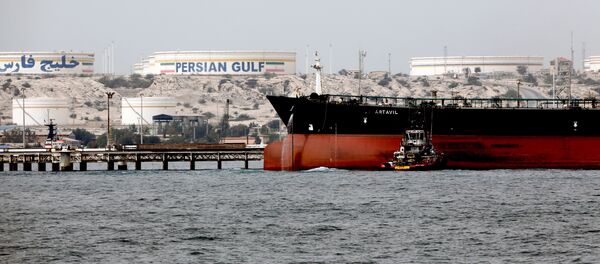Iran and Turkey are working on a new gas trade mechanism to enable the two countries to resist US sanctions pressure, Iranian Ambassador to Turkey Mohammad Farazmand said, the Islamic Republic News Agency has reported, citing an interview by the ambassador with Turkish television.
"Iran exports a large volume of gas to Turkey and we need a new mechanism to be created to ease financial transactions via our national currencies," Farazmand said. "We are [in] the process of establishing a joint bank as well," he added.
Accusing the Trump administration of waging "economic terrorism" affecting the rights of both Iran and Turkey, Farazmand noted that "all countries are entitled to develop common trade ties with one another, and nothing illegal has been done in this regard. The cooperation is not meant to bypass the US sanctions."
According to the ambassador, part of the mechanism for joint trade is already established. "We should also establish a new exchange mechanism to further use our own national currencies instead of the US dollar in international trade," he stressed.
Last month, Ankara agreed to halt its imports of Iranian crude oil amid fears of US sanctions, but criticised Washington's move to end the oil import waivers granted to Turkey and over half a dozen other countries. Before May 2018, Turkey imported an average of 912,000 tonnes of oil from Turkey every month, with this figure accounting for nearly half of Ankara's total oil imports. Amid US sanctions pressure, Ankara's purchases of Iranian oil have declined precipitously to an average of 209,000 tonnes per month between November and April, with imports drying up completely in May.
The US extended six-month waivers for eight major oil importers of Iranian oil in November 2018, with the waivers, provided to countries including Turkey, China, India, Greece, Italy, Japan, and South Korea, as well as Taiwan, expiring in May.
Earlier this year, Hassan Montazer Torbati, chief of Iran's National Gas Company, indicated that Turkey had requested to increase imports of Iranian natural gas. Last month, Torbati confirmed that Tehran was building up its gas refinery and pipeline infrastructure to significantly expand gas exports to countries including Iraq and Turkey.
Iran has the world's second-largest proven reserves of natural gas.



